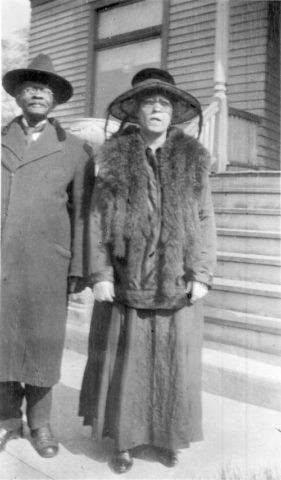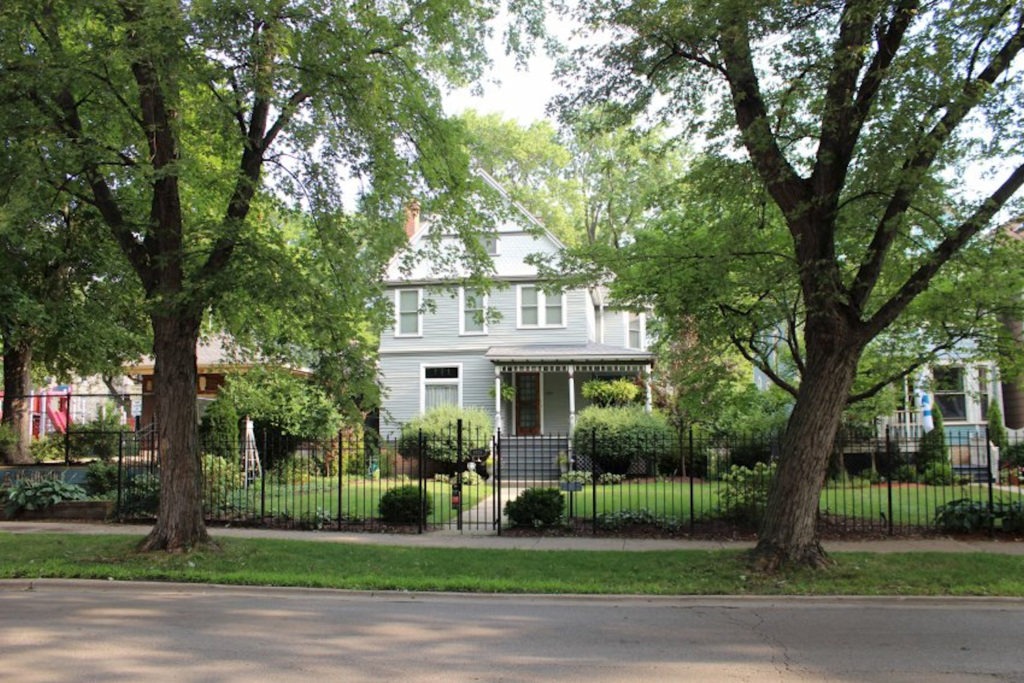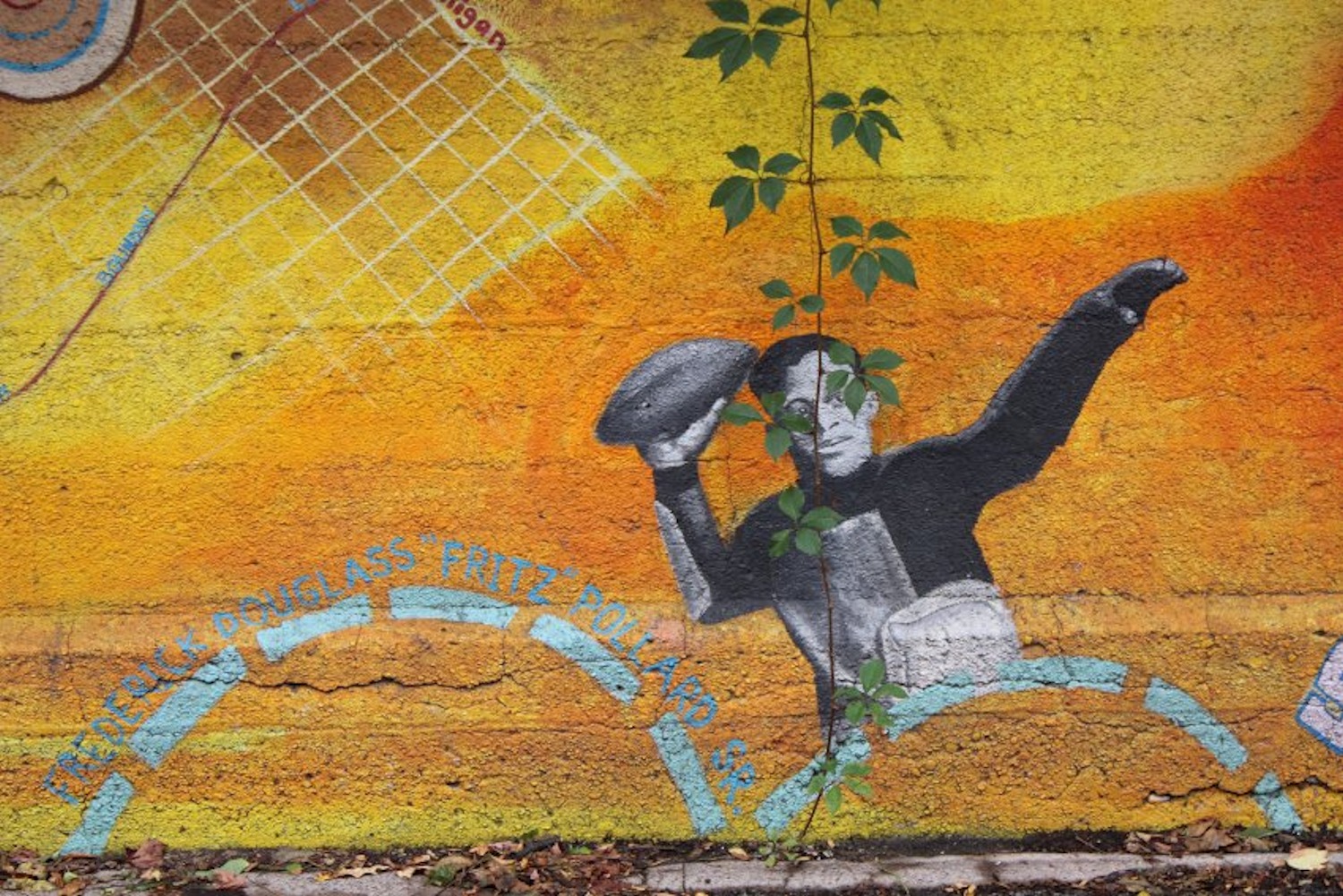Paschen Park, 1932 W. Lunt Ave., is a pocket park on a side street on the city’s Far North Side. Its current namesake is a convicted tax evader who served two years in the federal pen. The Rogers Park/West Ridge Historical Society has a better idea: name it after the neighborhood’s first Black family. The Pollards lived right next door to the park, and counted among their children Ivy League graduates, a filmmaker, a jazz musician, the state’s first Black nurse, and — most famously — a pro football hall of famer who was one of only two African-American players in the National Football League’s inaugural season, and served as the league’s first Black coach.
Fritz Pollard learned how to be Black in a white man’s world in Rogers Park.
Pollard’s parents, John and Amanda, were Rogers Park’s first Black residents. John, a Civil War veteran, opened a barber shop there in 1886, after fleeing Missouri to escape the border state’s racism. When their seventh child was born, in 1894, they named him Frederick Douglass, after the abolitionist. His German and Luxembourger playmates shortened that to Fritz, the nickname for Frederick in their ancestral countries. At the beach, white strangers asked Pollard and his three brothers why they were there, but Pollard’s father taught his four sons “how to handle these situations without losing our heads and using our fists,” Fritz said; but he also taught them to box.
Pollard was undersized for a football player — he only grew to five-foot-eight — but his big brothers Hughes and Leslie campaigned to put him on the Lane Tech football team, telling the coach, “You get our brother on the team, or we won’t play, either.” In his first football game for the Indians, Fritz was being abused by a Hyde Park tackle named Butch Scanlon. So Hughes asked for the ball and flattened the Irish kid.
“From now on, you just learn to take care of yourself,” Hughes told Fritz. “I’m all through. I’m not going to play anymore.”

Pollard was one of Chicago’s most popular prep athletes, all-Cook County in football, baseball, and track. Outside the city, though, schools refused to compete against a Black kid. At a scrimmage against St. John’s Military Academy in Wisconsin, Pollard’s coach kept him on the bench, telling him, “This is a practice game; I think we’d better save you.” Afterward, a St. John’s player threw racist slurs at him.
Undiscouraged, Pollard went to Brown University, where he led the Bears to victory in the 1916 Rose Bowl. In 1919, Pollard was coaching college football at Lincoln University in Philadelphia when he was summoned to Akron, Ohio, by Frank Nied, owner of the Akron Indians, a semi-pro football team. The Indians were preparing for a rematch with their intrastate rivals, the Massillon Tigers, and Nied wanted to sign the best running back in the country. The Indians lost to the Tigers, 13-6, but Pollard scored their only touchdown, and soon became the team’s star attraction, earning $400 a game. The next year, Akron was one of 11 Midwestern clubs to participate in the founding of the American Professional Football Association, the precursor to the NFL. They changed their name to the Pros, to reflect their new status. In the team’s second professional season, Nied appointed Pollard coach. He was pro football’s first Black coach — and its last until 1989, when Art Shell was hired by the Oakland Raiders.
When Fritz was 17, the Pollards bought a home at 1928 W. Lunt Ave. It remained in the family until 1988, two years after Fritz’s death. The house is directly beside Paschen Park, which the Rogers Park/West Ridge Historical Society is now proposing the Park District change the name to The Pollard Family Park, after Fritz, his parents, and his siblings. Fritz, who was inducted into the Pro Football Hall of Fame in 2005, is the most famous Pollard, but “the rest of the family also are very accomplished, and several are more significant than Fritz,” said Dona Vitale, a Historical Society member leading the campaign.
The family’s oldest child, Artemisia, was the first Black nurse licensed by the state of Illinois; oldest brother Luther owned Ebony Films, a Chicago-based producer of movie shorts with all-Black casts; Naomi was the first Black woman to graduate from Northwestern, and became head librarian at Wilberforce University in Ohio; Leslie went to Dartmouth and became a New York sportswriter; Hughes led a jazz combo that toured the world, but died at 35 as a result of injuries from a mustard gas attack in World War I.

Vitale thinks the park should be renamed not just because of the Pollard family’s distinction, but because of the ignominy of the current namesake. Christian Paschen, the city’s building commissioner in the 1920s, was convicted of tax evasion in 1932, and served two years in the federal penitentiary at Leavenworth, Kan.
“His name is on the park because when he was building commissioner, he was instrumental in arranging a lease of the land from the Chicago Board of Education,” Vitale said. “But there seems to be no other connection to the land.”
If the renaming is successful, the Historical Society would like to install an exhibit about the Pollards in the fieldhouse: “the kids of the neighborhood should know about this,” Vitale said.
This Sunday, from 1 p.m. to 3:30 p.m., the Historical Society will hold a Virtual House Walk featuring the Pollard family’s story, and a tour of their house, led by the current owners. Register for the event here.



